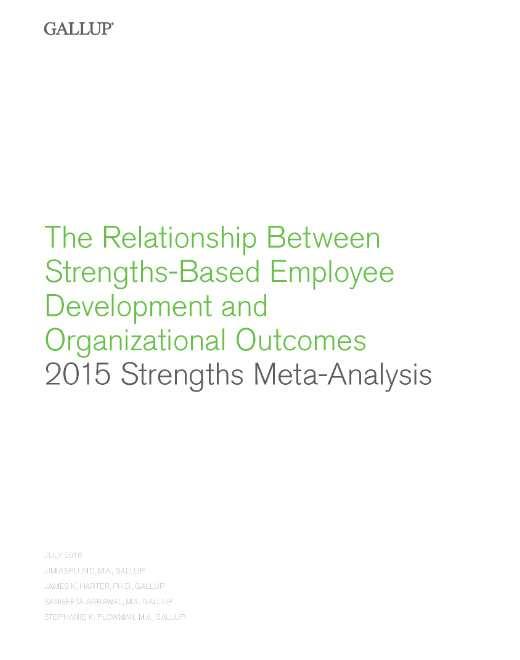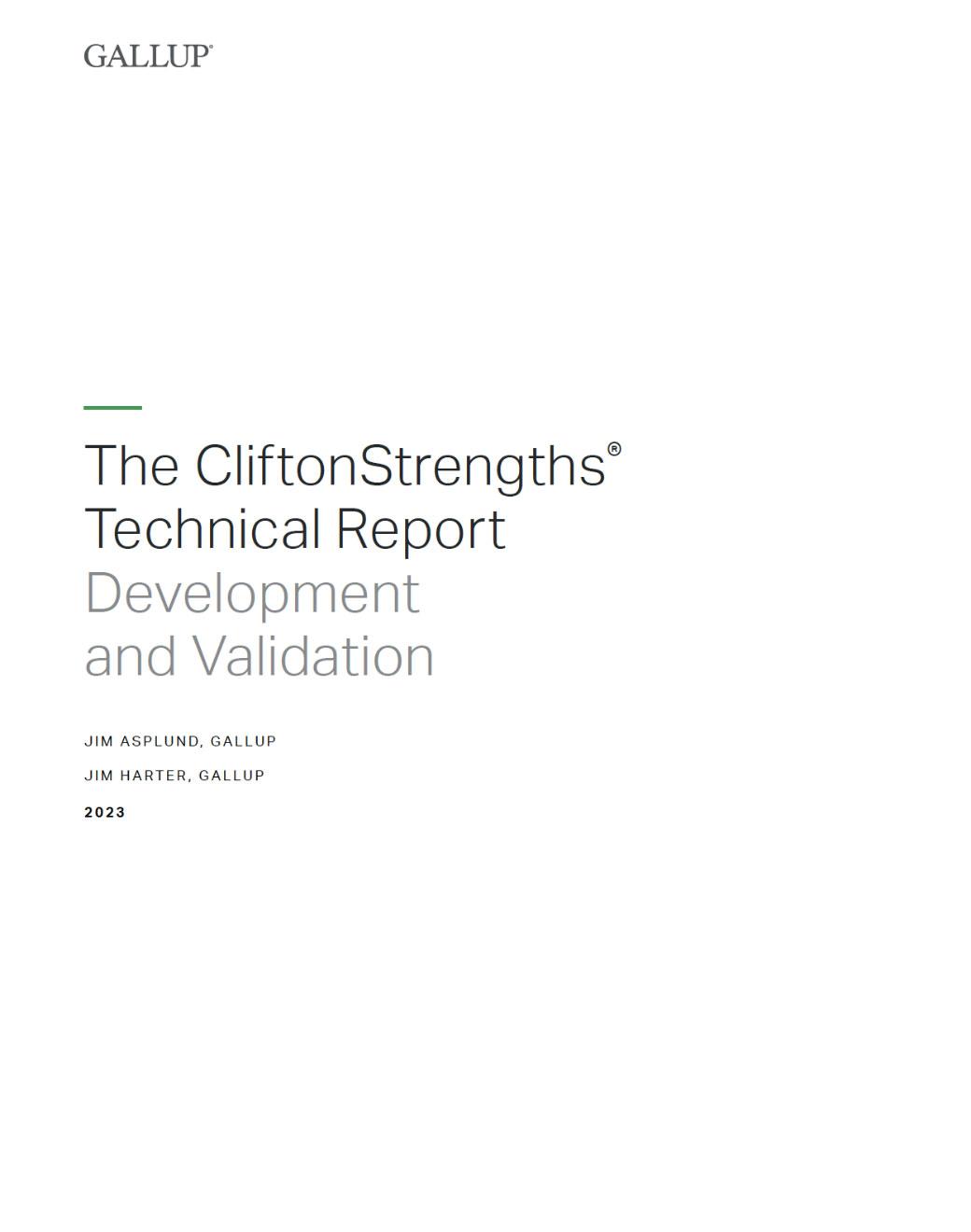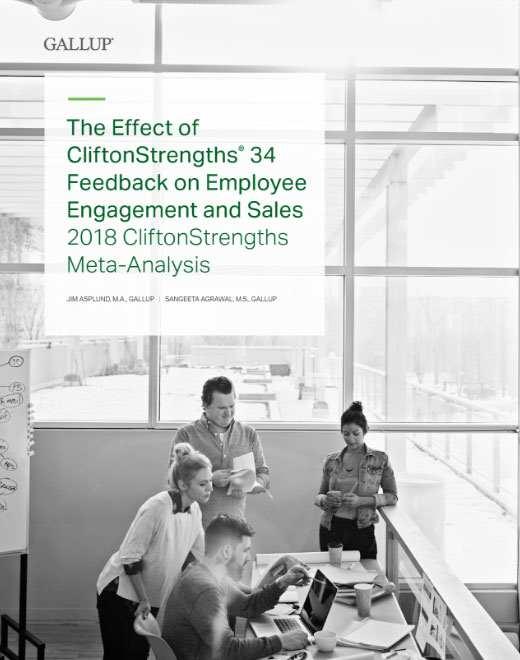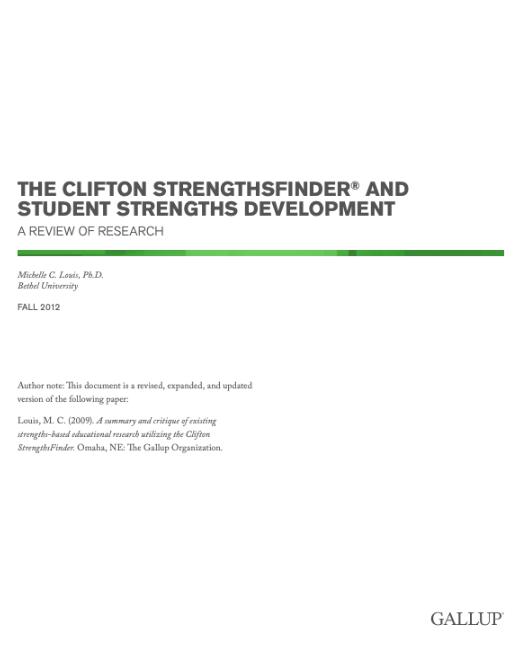Learn About the Science and Validity of CliftonStrengths®
Millions of people have discovered their strengths and have common questions about the research. They may ask, "Can I retake CliftonStrengths?" or wonder whether their CliftonStrengths (formerly StrengthsFinder®) results change over time. Discover how our research and science can answer questions like these.
CliftonStrengths (Formerly StrengthsFinder) Research and Where It All Began
Traditionally, the field of psychology was focused more on interventions that decreased an individual's misery. But Don Clifton saw an opportunity to supplement this traditional science -- a way to build the "enabling conditions of life." Strengths science answers questions about what's right with people rather than what's wrong with them.
Clifton initiated early work on strengths and received a Presidential Commendation from the American Psychological Association (APA) in 2003 as the father of strengths-based psychology and the grandfather of positive psychology for his efforts.

"Strengths science answers questions about what's right with people rather than what's wrong with them."
-- Don Clifton
Down to the Science: Talent x Investment = Strength
The formula Talent x Investment = Strength captures a profound concept in a simple fashion.
Talents, founder Don Clifton wrote, are your "naturally recurring patterns of thought, feeling or behavior." They're the innate, natural abilities you can productively apply.
When Clifton studied human behavior, he noted hundreds of positive characteristics and saw that many of those characteristics had commonalities. Based on those common traits, he distilled them down into the 34 talent themes we know today. To identify the rank order of those 34 themes for yourself, take the CliftonStrengths assessment, which measures the presence of talents.
But to turn those talents into strengths, you must invest in them -- practice using them and add knowledge and skills to them.
Talent is a natural way of thinking, feeling or behaving.
Investment is time spent practicing, developing your skills and building your knowledge base.
Strength is the ability to consistently provide near-perfect performance in a specific task.
The Effectiveness and Reliability of CliftonStrengths
Trusting your results is the first step in getting the most out of the CliftonStrengths assessment. Here are some common questions individuals have before and after they take the assessment:
Is CliftonStrengths reliable?Yes. Gallup has abundant evidence that CliftonStrengths is reliable, with excellent test-retest results (results and differences between an individual's initial test, and then retest). These results are particularly important because it indicates the long-term stability that respondents depend on.
Can my CliftonStrengths results change over time?Respondents should not be concerned about their results becoming invalid over time and should expect a high degree of stability over several years. The order of themes (and strengths of the themes) is quite stable among those who tested more than once over a decade after their first assessment.
Should I retake the CliftonStrengths assessment?Generally, no, as most individuals will not see meaningful changes in their results. The times we may advise retaking the assessment are if the individual was distracted while taking it, took it in a non-native language, or took it early on in their life and more than 10 years have passed (as they may interpret the questions differently).
"Is CliftonStrengths evidence-based?" What people are really asking.
Does it work? Will it help? Can it help improve performance or aid personal development? Our data show that people who have the opportunity to use their CliftonStrengths are:
6x as likely to be engaged in their job
6x as likely to strongly agree that they have the chance to do what they do best every day
3x as likely to report having an excellent quality of life
Plus, people are more confident and more likely to achieve their goals. They're more likely to report having ample energy, being happy and being treated with respect. They're also less likely to report experiencing worry, stress, anger, sadness or physical pain.
How CliftonStrengths Encourages Employee Engagement
A Gallup research paper published in the Oxford Handbook of Positive Organizational Scholarship states:
"A strengths-based approach to management is the single best means of improving the employee-manager relationship that Gallup has observed over the years of working with organizations to improve employee engagement."

But the impact of strengths-based development isn't limited just to employee engagement.
In addition to higher levels of engagement, our research shows that employees who receive strengths-based development experience increased performance and lower attrition.
Plus, workgroups that receive strengths-based development post increased profit and sales while delivering higher customer engagement metrics.
Download Gallup's Research on Strengths-Based Development
Although the outcomes speak for themselves, we know the research speaks loudly too. Check out our technical research and download the reports to learn more.
The Relationship Between Strengths-Based Employee Development and Organizational Outcomes
This report -- based on a study of more than 1 million individuals and almost 50,000 business units -- demonstrates the powerful connections between employee strengths development and business performance.

The CliftonStrengths® Technical Report
This summary of reliability and validity evidence includes the purpose and application of the assessment, an explanation of the assessment scoring, validity research, development data, and more.

The Effect of CliftonStrengths 34 Feedback on Employee Engagement and Sales
Discover the effect that CliftonStrengths feedback has on employee engagement and how sales increase when you focus on feedback in your complete CliftonStrengths profile.

CliftonStrengths and Student Development
A summary and critique of existing strengths-based educational research using CliftonStrengths.

How Does CliftonStrengths Compare to Myers-Briggs® or Other Assessments?
We often receive questions about how the CliftonStrengths assessment compares to other assessments, development tools and personality tests.
Check out the following comparisons:
Subscribe to the CliftonStrengths Insights Newsletter
Be among the first to know when we publish new reports, articles and other research detailing the power of strengths-based development.
